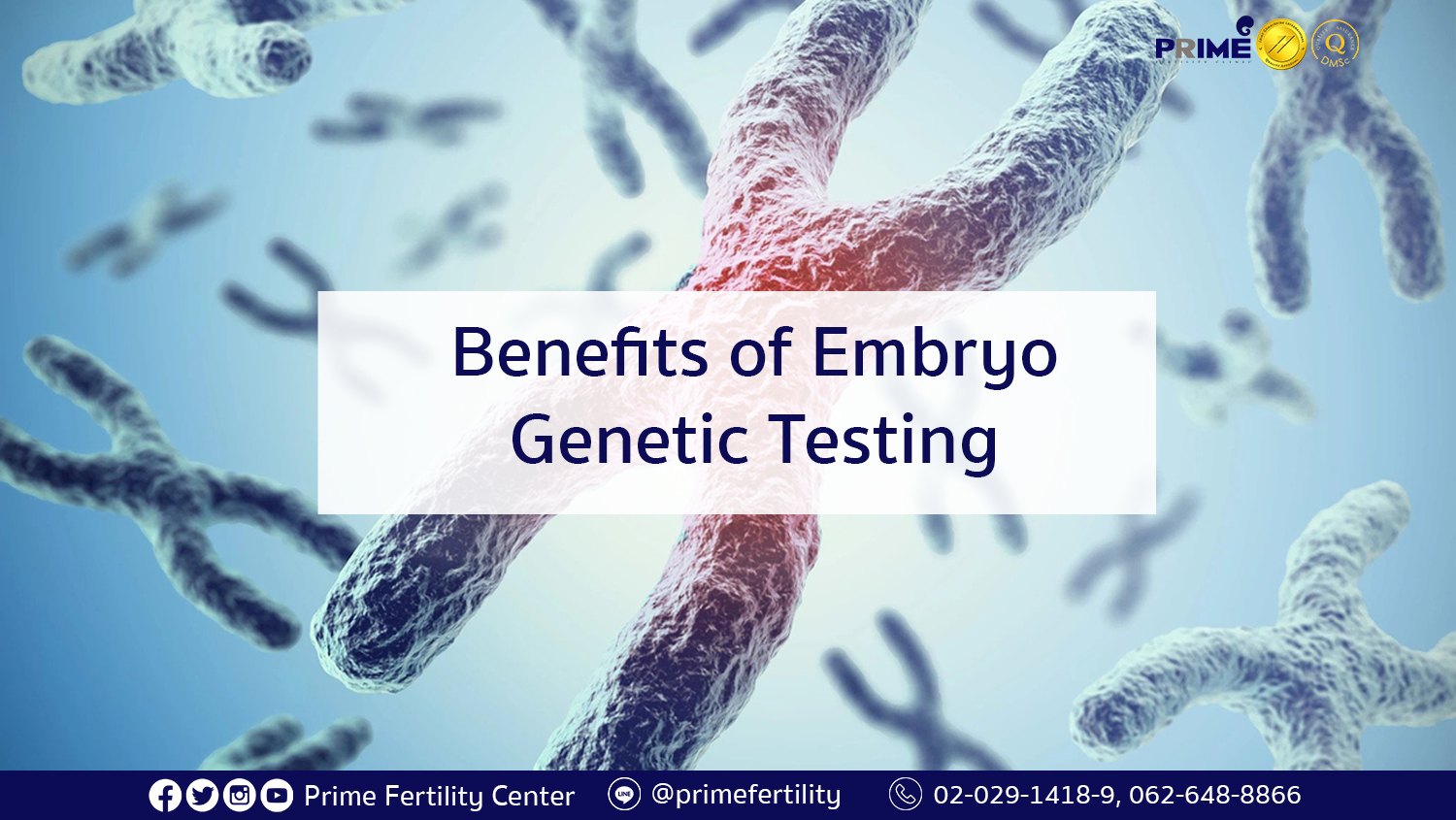Why should you do embryo genetic testing? What about pros and cons?
Embryo genetic screening or Pre-implatation Genetic Testing (PGT) is a screening test to detect embryo’s chromosomes abnormalities prior to transfer. The test is to analyze 22 pairs of autosomes and one pair of sex chromosome (XX or XY). These are advantages and disadvantages that you should know before making decision.
Advantages
1. Embryo abnormalities are revealed prior to implantation
2. Reduce abortion rates due to the embryos carry one or more genetic abnormalities
3. Parents can select a healthy and qualified embryo to implant
4. Pregnancy rates increase by 60-80%
5. Reduce the heredity of genetic diseases from generation to generation
6. PGT gives 99% accuracy
7. Reduce the waiting time for pregnancy
Notice
1. PGT process is including trophectoderm biopsy that may harm the embryo in case of poor-quality embryo or the test is performed by unskillful embryologist. (A professional embryologist is able to evaluate embryo quality in order to identify the suitability of this test.)
2. PGT result does not mean or guarantee that the embryo is 100% normal or abnormal. Since trophectoderm has been retrieved from the embryo for PGT will not develop to a fetus.
3. PGT is considered an additional treatment. The prices are different among hospitals.
4. The decision for receiving PGT should be made before embryo freezing when the embryo is in blastocyst stage (Day 5 or Day 6). Unless, rethawing for embryo biopsy and refreezing may harm the embryo accordingly.

